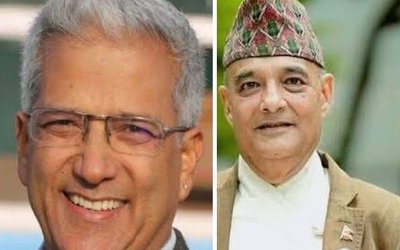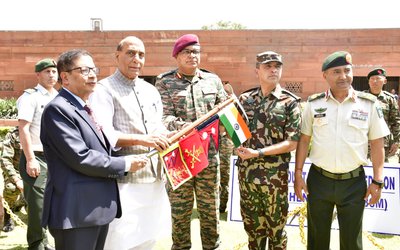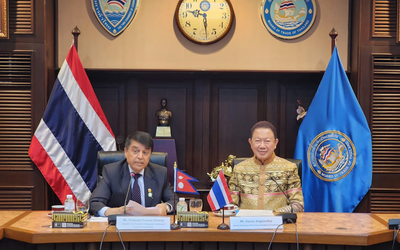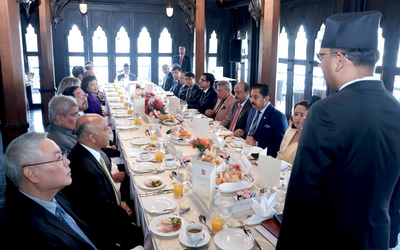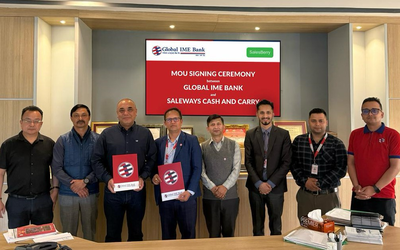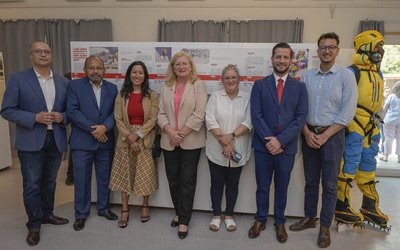Academically, I have only a Masters degree in Economics which I obtained some sixty-three years ago from the University of Bombay. Six months at the Harvard Law School focusing on financial legislation were also very instructive.
Among the numerous classic works of the renowned economists that I had to study as a student, Adam Smith’s “Wealth of Nations”, Karl Marx’s “Das Kapital” and John Maynard Keynes’s “General Theory of Employment, Interest and Money” deeply impressed me. Wishing to keep abreast of new theories I managed to thumb through Milton Friedman’s “Capitalism and Freedom” and Paul Samuelson’s “Foundations of Economic Analysis” during my busy career as a top level civil servant of the Government of Nepal and Representative of the United Nations development system. Lately, I have been itching to lay my hands on Professor Elinor Ostrom’s “Governing the Commons” for which she was awarded the Nobel Prize.
Events in Nepal hurled me into a remarkably active life immediately after my student days. Committed to democracy I, in 1949, secretly enrolled in the Nepal Democratic Congress pledged to toppling the Rana regime and clandestinely carried out some revolutionary activities. I was thrilled when King Tribhuvan announced in February 1951 that democratic governance would be ushered in the country.
After the beginning of ministerial governance in Nepal in late 1951, I had the unique privilege of serving the country as the first Finance Secretary, establishing the Ministry of Finance, and modernizing the financial institutions. Then as the first Governor of the Central Bank i.e. Nepal Rastra Bank, I succeeded, among other things, in making arrangements for the circulation of Nepalese currency in the Terai region, in stabilizing the rate of exchange between the Nepalese and Indian rupee and in making Nepal independent in foreign exchange transactions.
After the coup d’etat by King Mahendra in 1960, my tenure as Governor was pre-maturely terminated in the purge of the top civil servants regarded as pro-democracy. Finding out that I was under surveillance, I decided to go abroad and applied for a job to the United Nations Secretariat.
My innings with the UN and United Nations Development Programme which began in 1962 covered six countries and spanned twenty-four years. I returned to Nepal in 1986.
In 1990, I was a witness to the revolution resulting in the dissolution of the partyless Panchayat regime, the restoration of democracy, and eventually the end of the license and permit regime. Bored with a retired life and buoyed by liberal economic policy, I ventured into industry and private sector banking with success.
The Nepal Communist Party-Maoist launched the People’s War in February 1996. Deeply disturbed by the massive loss of lives and property due to the armed strife, I took the initiative to publish on July 25, 2002 a public appeal in the Kantipur daily signed by prominent members of the Civil Society, calling for peace talks between the Government and the Maoists. This was the beginning of my inning as a conflict resolution activist. Once the 12-point understanding between the leaders of the Seven-Party Alliance and the Chairperson of the CPN-Maoist was signed on November 22, 2005, I virtually closed my conflict resolution organization named “Nepal Citizen’s Forum.”
Thus, a variety of assignments as Finance Secretary, Governor of the Central Bank development practitioner, industrialist, private sector banker, and civil society activist, have come my way during my life time of eight decades.
Based on my experiences I would like to share with you some of my observations about our country.
The lines of a very popular patriotic song ‘Jai Jai Jai Nepal/Sundar Shanta Bishal’ keep on re-sounding in my mind. Formerly known as the only Hindu Kingdom in the world, the new Federal Republic of Nepal is endowed with the world renowned snow-capped peaks of the Himalayas. Numerous lovingly crafted temples and monuments adorn the Kathmandu Valley. The southern belt of the ‘Tarai’ is blessed with nature’s bounty of fertile land, and dense forests. Wide rivers in the eastern, central and western regions irrigate vast swathes of farmland and await multi-purpose harnessing. The country’s flora and fauna are remarkably diverse. It would not be an exaggeration to call Nepal a rainbow country. The people of Nepal, made rugged by their environment, are of multi-ethnic origin and are known for their hard work and tolerant dispositions. Nepal had been a peaceful country for ages.
The country, after journeying through several vicissitudes such as the hijacking of democracy and its reinstatement, the Maoist armed revolution and the Comprehensive Peace Agreement, is presently going through one of its most difficult phases. The political, social, and economic scenarios are worrisome for the future.
The people’s longing for peace and security has yet to materialize. Though the Maoist violence and armed operations have stopped, extortions and kidnapping by ethnic and armed criminal groups are still taking place. Insecurity continues with frequent ‘Chakka Jams’ (road blocks), vandalism, and labor strikes that are directly or indirectly backed by political parties.
Obstinacy, maneuverings, and bargaining appear to be the forte of the prominent political leaders; not conciliation and cooperation in the greater interest of the country.
The Nepalese economy is ambling along propped by natural growth of trade and by remittance from Nepalese workers abroad. Due to insecurity and the uncertainty of future government policies, capital which flew mainly south has yet to return as investment in the country. A crippling shortage of power supply and sudden labor strikes in the industry have scared new investment in industry and dampened the zeal of the captains of industry. Corruption in all sectors of the Government has been corrosive.
We are also witnessing an alarming rural exodus. Thousands of skilled, and unskilled young men unable to find employment in the country have been going abroad in search of jobs virtually emptying the villages in the countryside. Concerned about these worrisome indicators, I would like to make observations on a few key issues.
Nepalese Politics
Since the change regime of in 1951, politics has been the dominant concern and activity of not only political leaders but also Nepalese citizens from most walks of life. Politicization of almost all sectors has continued apace. The degree of such obsession should be gradually reduced by politicians. We have had enough of ideological Jihads. There is a crying need for a politics focusing on the welfare of the common man and on responsive governance.
Though people have repeatedly voted for democracy, democratization in developing societies is no easy task. Young democracies are from time to time threatened by unrealistic expectations. But we should not stray from the path of democracy. Political parties should inculcate a democratic culture by genuinely respecting political opponents and refusing to sponsor political activities leading to violence, destruction of property, and the disruption of public services.
Centralized planning and implementation have failed to alleviate poverty. Hence people have voted for the decentralization of power or governance. Federalism is certainly one of the means of decentralization. It will be catastrophic if, in pursuance of this model, ethnic federal states are established by the Constitution. Peaceful, harmonious Nepal will be battered by ethnic conflict for years to come. Our new Constitution must ensure that a citizen of Nepal, whatever his/her ethnic origin, will enjoy equal rights wherever he/she resides or inhabits.
It is said by the voters that political leaders interact during election campaigns but seldom contact them afterwards. Elected politicians vote on issues guided by their own stance or party whip irrespective of the view of the voters of their constituencies. Alerted by such scenarios I have come to believe in direct democracy. In other words, I am strongly in favor for the provision of referendums on national issues in our Constitution. Our political history reveals that political parties in power have taken immature decisions in the past either because they were under indirect pressure or they wished to cater to the masses. I do not regard holding a referendum as too onerous a task for the Election Commission.
Observing the hydra-headed corruption in Nepal, one wonders where to begin the campaign. High level corruption is mostly initiated by Ministers and politicians. It is said that they have to resort to this means to pay back their election expenses. I have been an advocate for many years of a provision in the Constitution for election expense grants to political parties based on their election score.
Water Resources
Nepal is enviably rich in water resources. Water will be more and more precious in the years to come due to global warming and climate change. Most of our decision makers are focusing on utilizing our water resources to generate electric power. In my view we should utilize the water flowing from north to south in our numerous rivers for irrigation, drinking water supply and medium sized run-of-river hydroelectric projects. Such utilization will minimize earthquake risk and ecological damage. More importantly, such projects will spare the resettlement of the internally displaced, which presently is becoming virtually unachievable.
Economic Policy
Presently, Nepal is overwhelmingly leftist – democratic socialists and communists in different shades. Models of communism enforced by Stalin, Mao or Castro have been or are being shelved as they eliminated the private sector market and ideologically forced people to work for the community. The majority of the Nepalese people are not in favour of political-social transformation by obstructive, destructive and confiscatory campaigns. The challenge to the leftist politicians is to craft a socio-economic policy that is tailored to the country’s socio-economic condition and democratically acceptable to the majority of the people of Nepal. I would suggest a few basic considerations for economic policy.
I would recommended adoption of a regime in which there is partnership between the public and private sectors, creativity and entrepreneurship are encouraged and rewarded, the zeal of investors and executives are not dampened by ceilings, rent seekers and inheritors are heavily taxed, syndicates and cartels artificially jacking up prices are controlled, basic goods needed for living are made available to the common man at fair market price by an efficiently run public distribution system, and the poor and senior citizens are aided by the state as much as it can prudently afford in the long term.
Agriculturally, decades ago, we exported rice, dal, ghee, etc. to India. But there was very little follow up to the massive investments in agriculture in the fifties and sixties. And now we import most food items from India and even China. The agriculture sector has been neglected as it is not a very attractive sector. Government must give top priority to becoming self-sufficient in food.
Industrialization in Nepal must be accelerated to create jobs for the burgeoning labour force. Now that our population has crossed 2.4 crore there is a sizable market for our entrepreneur to cater. However, most of my industrialist friends complain about unpredictable and discouraging labour problems. I suggest that the Ministry of Labour study the Swedish labour market treaty signed between the Swedish Trade Union Confederation and the Swedish Employers Association known as the Salts Jobaden Agreement.
Message
I would like to end my address with a few message to the graduates and post graduates who will be embarking on their voyage of life. First, I am not pessimistic about the future of Nepal. Political wrangles and conflicts over the last six decades have impeded our socio-economic progress. Consensus on the political model that the majority of people will opt for should emerge after the next general election. Relatively, we have made notable progress in the education and health sectors and in human resources development. Adopting new technologies and processes we can take strides in the path to better life once political settlement is reached.
Second, today i.e. the tenth of December, happens to be the Human Rights Declaration Day. You, the educated members of the Nepalese society, must be unflinching upholders of the civil rights of the Nepalese citizen and of social liberalism. You must dedicate yourselves to oppose authoritarian rule in any form.
There is no shortcut to success. Discipline, concentration and creativity are essential to achievement in any pursuit.
I would like to end what I have to say with a rider. To me human life at this juncture of human history is not for only exertion, but also for enjoyment. Human beings have overcome the limits of time and distance to a great extent. They can now google and surf the internet. There are such a great variety of things for them to savour in the present day world that, if there is re-birth, I would like to be born again as a human being.
Rana is a renowned civil society leaders. Excepts of the statement delivered at Eighteenth Convocation address at Kathmandu University.






